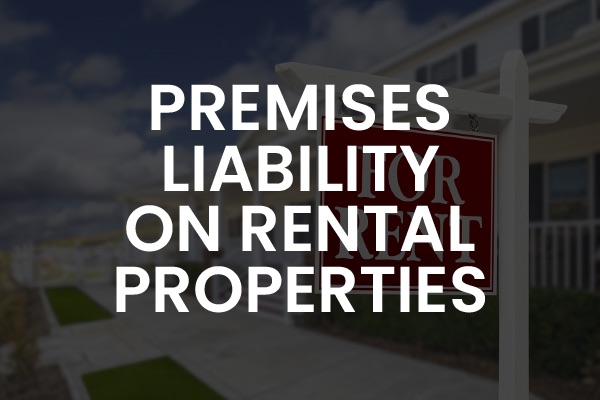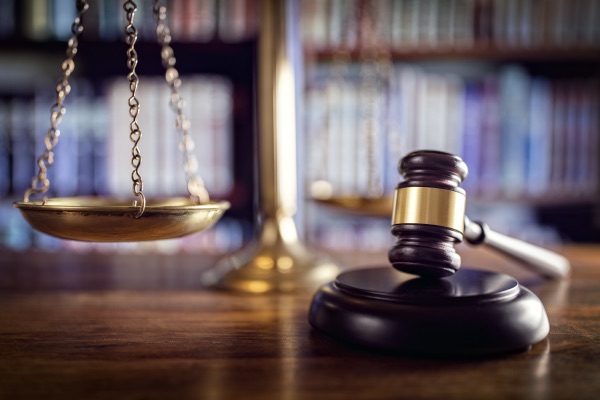
Premises liability is a legal concept in personal injury cases where the injury was the result of an unsafe or defective condition on someone else’s property. In most cases, premises liability involves homeowners and their guests, shoppers at a mall who got hurt because of a wet floor with no sign, or other similar situations.
However, most individuals don’t realize that if they, as a tenant, become injured on a residential property, the landlord may also be held responsible. In these cases, it must be proved that the landlord’s action or inaction somehow contributed to the injury.
In this article, your dedicated Premises Liability Attorneys at the Hernandez Law Group, P.C. have taken the time to look into what situations could result in your landlord being held responsible for the injuries you or your guest sustain when on the rental property.
When Is a Landlord Considered Negligent?
Negligence is defined as the failure to behave with the level of care that someone of ordinary prudence would have exercised under the same circumstances. Under this definition, a landlord is considered negligent and liable for a tenant’s or their guest’s injury if it can be proven that their actions or failure to take action can be directly linked to the victim’s accident and injury. In a personal injury and premises liability case, these actions or inactions can look like the following:
The Landlord Failed to Handle a Dangerous Living Condition
Landlords are responsible for ensuring that the property they are renting out is reasonably safe for their tenants and any guests who come onto the property. For example, if the stairs have a broken railing, by law, the landlord is required to fix this issue as soon as possible, since the broken railing poses an increased risk of an individual falling when climbing or descending the steps. If the tenant or another individual was hurt due to the broken railing, the landlord can then be held responsible for their failure to fix it and make it safe.
The Landlord Knew of a Risk or Hidden Danger But Failed to Notify or Act
If the landlord knows of hidden danger on the property, such as the floors being uneven or a hidden basement door under a rug, the tenant must also be made aware of this fact. If, however, the landlord refused to tell the tenant of the hidden danger or failed to rectify the issue before the tenant moved in and got hurt, the landlord may be held liable for the damages and medical expenses resulting from the accident.
The Accident Was Foreseeable

There are some tricky circumstances surrounding premises liability cases. For example, landlords are responsible for handling repairs for problems that can cause injury to an individual, such as a broken railing for stairs.
In these cases, the landlord has two options. They can either warn the tenant of the potential danger, such as warning them about the broken railing and directing them to use a different route to exit the home as they wait for repairs, or they can handle the repairs or take measures to prevent the injury.
However, there are some cases where a landlord may not have been able to foresee that an issue with the home, such as paint chipping from a door, could cause injury. If that unforeseen issue somehow did result in an injury, the landlord most likely won’t be held responsible in that case.
In the case of the example where the paint was chipping from a door, this is because there was no way that a reasonable individual would be able to tie a door with chipped paint to an accident waiting to happen.
The Cost and Feasibility of the Repair Was Reasonable to Avoid Danger
Texas State law holds landlords responsible for maintaining their properties to avoid an accident that can cause injury to tenants and guests. Courts will not hesitate to hold a landlord responsible when the landlord fails to perform a reasonably priced repair to eliminate or lessen a dangerous condition on a property.
For example, if a landlord is aware that there is a drop-off from the patio or an uneven floor in the home, they may paint a stripe or place sign warning tenants and guests of the danger. This would suffice, especially if the repair costs to fix the issue are astronomical.
However, if the landlord fails to take any action and an accident were to occur, the landlord would be held responsible because the risk of harm outweighed the burden of doing the repair or warning the tenant of the danger.
The Landlord Understood the Likelihood of Serious Injury
In some circumstances, such as a hole in the roof, the court would hold the landlord responsible for getting the repair done as soon as possible as there is a significant risk of serious or deadly injury.
In the case of a hole in the roof, the landlord is responsible for getting a roofer out to fix the damage as soon as possible. They are also required to ensure that the affected area, which could be the whole house, is marked off until the area can be made safe for the tenants and their guests. The landlord may also be required to provide temporary housing for the tenant until the issue can be resolved.
The Landlord Failed to Take Reasonable Steps to Avoid an Accident
It is important to note that the landlords are not responsible for always taking drastic measures to protect tenants from every condition that could pose a risk. Instead, landlords are only responsible for risks that could cause significant harm to the tenant. This is also known as reasonable care.
Reasonable care is a term that is used to describe the amount of care an average, competent landlord would use when faced with a similar circumstance. This could include fixing a broken step or railing on stairs, fixing a loose floorboard inside of the home that could result in a serious tripping accident, or ensuring that the roof is regularly maintained to protect the home.
Landlords who regularly check their homes and do thorough inspections and did not see a potential issue until an accident occurred might be able to successfully show that they met their duty to keep the tenant reasonably safe. The stair could have broken at that moment or shortly after the inspection. In these cases, it is important to have a premises liability attorney to help you navigate this situation.
What Should I Do If I Was Involved In an Accident on a Rental Property?

If you or a loved one was injured on a rental property and you believe the injuries could have been prevented had the landlord acted with more care, you need to take the following steps:
- Seek medical attention immediately after your accident. This will ensure that any injuries you sustained are handled and properly cared for while also getting them documented. This documentation can later be used in a court of law to show the extent of your injuries.
- Report the accident to your landlord or the property manager. You will want to make sure you get a copy of the incident report as this can also be used in a court of law.
- Take pictures of where the accident occurred. Make sure all of your photos are marked with the date and time. Evidence that does not show this can be removed from the evidence as it could be considered forged or false evidence.
- If there were witnesses to the accident, get their contact information. Witnesses will help paint a clearer picture of what happened which is great for helping your claim.
- Call an Experienced Personal Injury Attorney. If you were injured in the DFW Metroplex, Amarillo, or Abilene area, then your trusted attorneys are the team at the Hernandez Law Group, P.C.
Need a Team to Help You With Your Premises Liability Case?
The Hernandez Law Group, P.C. understands the difficulty of dealing with a personal injury case. Not only are you trying to sort through the chaos of dealing with your injury, but you are also worried about protecting your family during these difficult times.
The Hernandez Law Group, P.C. is dedicated to giving a voice to those who are seeking to gain compensation from the negligent party. Whether that be a landlord, a drunk driver, or a negligent manufacturer, our team is committed to bringing your case to its just conclusion. Contact our team today for more information on our services or to schedule a consultation with one of our caring lawyers.
